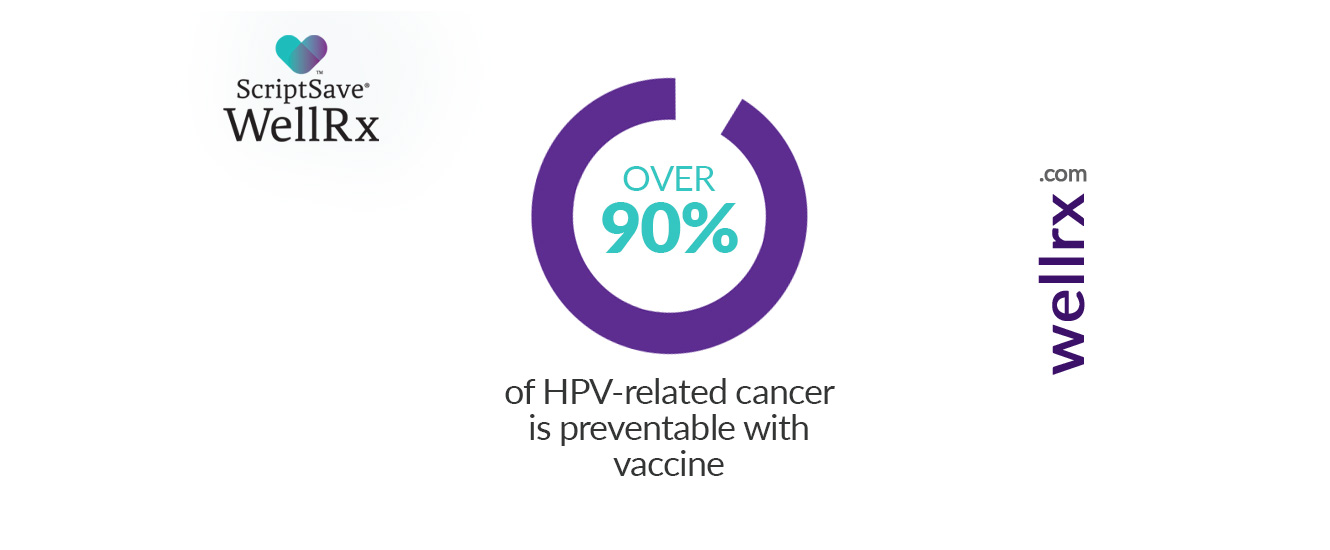Human papillomavirus (HPV) is the most common sexually transmitted infection (STI) in the United States. Nearly 80 million people are currently infected with HPV in the U.S and about 14 million people, including teens, become newly infected with HPV each year.1
The good news is that there are HPV vaccines available that can protect against diseases caused by HPV.
How Does HPV Spread?
HPV is usually spread during vaginal or anal sex, if you have sex with someone who has the virus.3 The virus can be even passed when an infected person has no signs and symptoms. Because the symptoms sometimes develop years after, it may be difficult to know when you first became infected.1
In most cases, HPV goes away on its own and does not cause any health problem in healthy individuals. However, it can cause other health problems, such as genital warts, which usually appear as a group of bumps in the genital area.1,3
Does HPV Cause Cancer?
Yes, HPV can cause cervical and other cancers, including cancer of vulva, vagina, penis, or anus. Rarely, it can also cause cancer in the back of the throat, including the base of the tongue and tonsils.3
Who Should Get the HPV Vaccine?
HPV vaccination is recommended for girls and boys at age 11 or 12 years. Women are recommended to get the vaccine until they are 27 years old and men up until they are 22 years old.2
Centers for Disease Control and Prevention (CDC) recommends that 11- to 12-year-olds receive two doses of HPV vaccine at least six months apart.1 Whereas, young adults who start the series later, at ages 15 through 26 years, should get three doses of HPV vaccine.1 The benefit of HPV vaccine is minimal with limited evidence in adults aged 27 to 45 years and should consult with their doctors first.7
Is the HPV Vaccine Safe and Effective?
HPV vaccines generally have no side effects, but some commonly reported side effects are:3
- Pain, redness, or swelling at the injection site
- Fever
- Headache or feeling tired
- Nausea
- Muscle or joint pain
The HPV vaccine has been studied for many years and shown to be highly effective and offer long-lasting protection. Clinical research has shown that HPV vaccine is nearly 100% effective in preventing HPV infections, especially in young individuals.4,5 Moreover, ever since the HPV vaccine is recommended, there has been a significant reduction by 86% in HPV infections among teens.1
Where Can I Get the Vaccine?
The HPV vaccine is available at your doctor’s office, health care clinics, or even your pharmacy, depending on which states you live in (be sure to check with your pharmacy!). Also, you can contact your insurance plan to find out if the vaccine will be covered.
Vaccines for Children Program
The Vaccines for Children6 (VFC) Program provides vaccines to children ages 18 years and younger at no cost if they meet at least one of the following criteria:
- Medicaid eligible
- Uninsured
- American Indian or Alaska Native
- Underinsured
To learn more, visit State VFC Web Site or call 1-800-CDC-INFO.
References:
- HPV Vaccination & Cancer Prevention. Centers for Disease Control and Prevention. https://www.cdc.gov/std/hpv/stdfact-hpv.htm. Reviewed 2016. Accessed February 17, 2020.
- Schiller, JT, Castellsague X, Garland SM. A Review of Clinical Trials of Human Papillomavirus Prophylactic Vaccines. Vaccine. 2012 Nov 20; 30(0 5): F123–F138. doi: 10.1016/j.vaccine.2012.04.108.
- Gardasil [package insert]. Whitehouse Station, NJ: Merck; 2011.
- Vincenzo RD, Conte C, Ricci, C, et al. Long-term efficacy and safety of human papillomavirus vaccination. Int J Womens Health. 2014; 6: 999–1010. doi: 10.2147/IJWH.S50365
- HPV Vaccine is effective, safe 10 years after it’s given, study shows. Science Daily. 2017. https://www.sciencedaily.com/releases/2017/11/171129131400.htm. Accessed February 17, 2020.
- Vaccines for Children Program (VFC). CDC. https://www.cdc.gov/vaccines/programs/vfc/ index.html. Reviewed 2016. Accessed February 18,2020.
- Meites E, Szilagyi PG, Chesson HW, Unger ER, Romero JR, Markowitz LE. Human Papillomavirus Vaccination for Adults: Updated Recommendations of the Advisory Committee on Immunization Practices. MMWR Morb Mortal Wkly Rep 2019;68:698–702. DOI: http://dx.doi.org/10.15585/mmwr.mm6832a3external icon













 Store & manage your medication list
Store & manage your medication list Medication pricing updates
Medication pricing updates Pill & refill reminders
Pill & refill reminders Medication journal & mood log
Medication journal & mood log